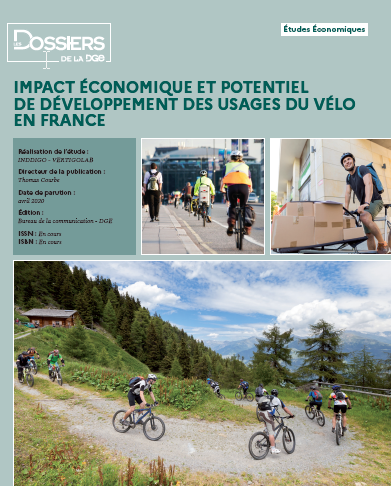Over the last ten years, cycling in France has changed significantly, driven by changes in society, major investment by local authorities and the spread of the electric bike. Moreover, in the current context of health crisis and gradual recovery of activity, transportation has grown as one of the main issues, particularly in large cities where cycling is one of the best sustainable alternatives.
At the request of the Direction Générale des Entreprises, the Direction Générale des Infrastructures, des Transports et de la Mer, the Agence de la Transition Ecologique (ADEME) and the Fédération de Cyclisme, Vertigo Lab, in partnership with Inddigo, has drawn up an inventory of the various cycling practices in France, including professional uses and their evolutions over the next 5 or 10 years.
Results
The study measured the economic effects and analysed international best practices in terms of “cycling” policy in order to inform public and private decision-makers in their projects to promote cycling.
Today, traditional sectors of the cycling economy in France are worth 2.5 billion euros and account for 13,500 FTE (full time equivalent) jobs. If direct and induced impacts of tourism and logistics activities are included, the cycling economy is worth up to 22.5 billion euros and provides more than 160,000 jobs. Finally, if health-related externalities are included, the cycling economy is worth 29.5 billion euros.
On average, 1 km by car costs between 0.38 and 0.44 euros when 1 km cycling generates 0,58 euros. of profit for the society.
Results can be found here:
- Executive summary (French)
- Full report (French)
- Illustration (graphic design)
Contact
Jean-Christophe Martin, Consultant – jcmartin@vertigolab.eu
Partner
|
Client: Direction Générale des Entreprises, Direction Générale des Infrastructures, des Transports et de la Mer, Agence de la Transition Ecologique (ADEME), Fédération Française de Cyclisme |


